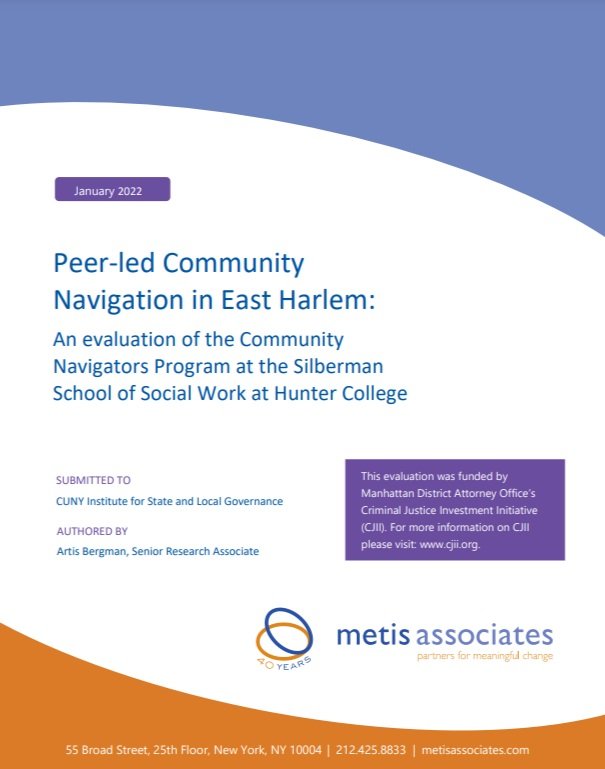[From Our Partners] Peer-led Community Navigation in East Harlem: An evaluation of the Community Navigators Program at the Silberman School of Social Work at Hunter College
The Community Navigators Program was launched in 2017 by the Silberman School of Social Work at Hunter College and is overseen by the City University of New York’s Institute for State & Local Governance, as part of the Manhattan District Attorney Office’s (DANY’s) Criminal Justice Investment Initiative (CJII). It operates with the stated purpose of developing a network of trained community navigators to identify individuals disconnected from services and helping them locate, connect, engage, and stay involved with services they need to meet and achieve their goals.
The program is located in the East Harlem community of New York City and is designed to address the immediate needs of community residents by:
Helping participants identify their strengths and develop an action plan for success,
Connecting participants to services,
Empowering participants to advocate on their own behalf,
Building the capacity of service providers within East Harlem to meet community needs,
Offering economic empowerment and training for community navigators, and
Supporting stronger communities overall.
In 2020, DANY selected Metis Associates to undertake an intensive process evaluation of the Community Navigators Program. Guided by a set of research questions, Metis researchers partnered closely with program staff to understand and capture the Community Navigators Program’s design, implementation, and best practices. Metis integrated data from a broad array of primary and secondary sources including program documentation; interviews with program stakeholders, leadership, staff, participants, and representatives of community partners; selected case notes; and program and administrative data recorded through December 2020.

